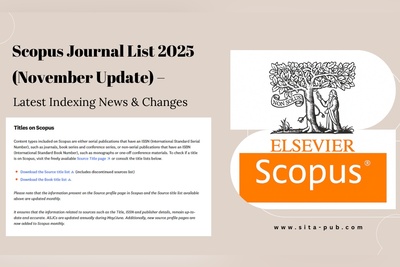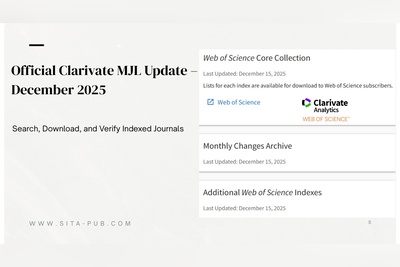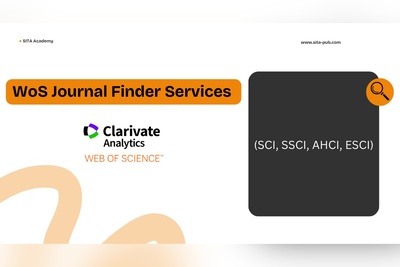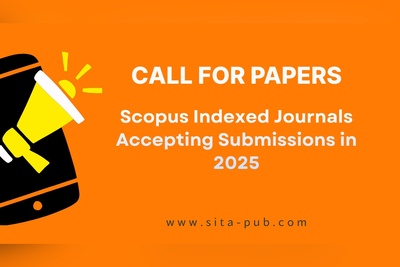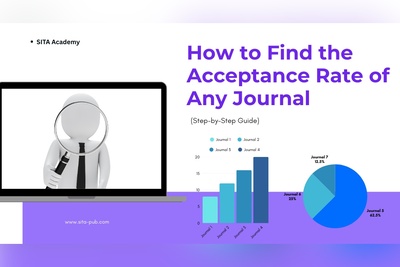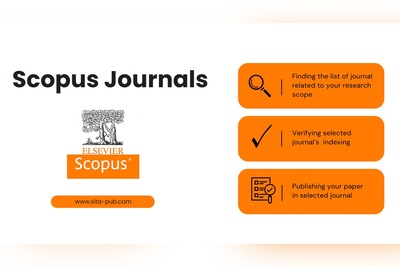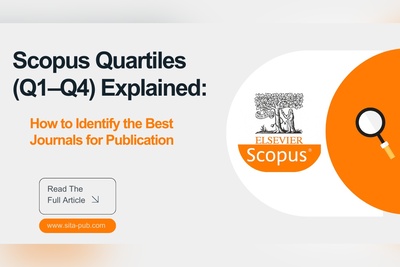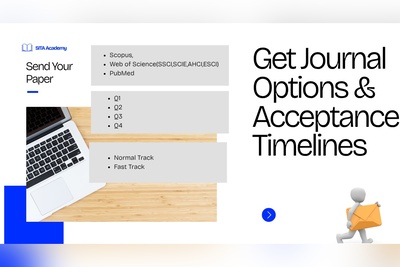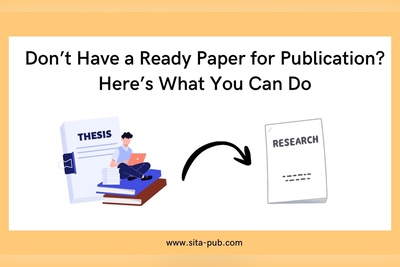5 Powerful AI Tools to Simplify Your Peer Review Responses
Everyone in academia faces challenges when answering peer review comments. Fortunately, there are AI tools available that can help simplify and improve this important process.

Responding to peer review comments is one of the most critical stages in the academic publishing journey. While it's a sign that your manuscript has potential, it's also a phase that demands precision, clarity, and diplomacy. For many researchers—especially non-native English speakers or early-career academics—crafting an appropriate response letter can be overwhelming.
Fortunately, artificial intelligence (AI) tools are emerging as valuable assistants in this process. From improving the tone of your replies to helping rewrite complex technical explanations, AI-powered platforms are making peer review responses smoother and more effective.
In this article, we’ll explore:
How AI tools can assist with peer review replies
Which aspects of your response they can improve
Leading tools available today, their features, and pricing
Ethical and practical tips for using AI responsibly in scholarly communication
Why Responding to Peer Review Comments Matters
When your manuscript undergoes peer review, reviewers provide feedback to help improve your work. Whether they request minor revisions or major overhauls, your response needs to demonstrate that you’ve carefully considered their comments and taken the necessary steps.
A well-written response letter can:
Convince reviewers of your paper’s value
Show professionalism and respect for the review process
Speed up the acceptance process
Reduce back-and-forth revisions

But writing such responses requires clear academic language, polite tone, strong argumentation, and precise referencing—an area where AI can make a significant difference.
How AI Tools Help in Responding to Peer Review Comments

Here’s how AI tools can support researchers when replying to peer review feedback:
1. Improving Clarity and Language Quality
Many AI tools specialize in grammar correction, clarity enhancement, and improving sentence structure. This helps ensure your replies are understandable and professional.
2. Adjusting Tone and Formality
Responding to critiques in a polite, confident, yet humble tone is essential. AI writing assistants can help revise text to sound more diplomatic and academically appropriate.
3. Paraphrasing Reviewer Comments
Sometimes reviewer comments are dense or unclear. AI tools can simplify or paraphrase them, helping you better understand the feedback and respond appropriately.
4. Summarizing Changes
Tools can help summarize your revisions for each reviewer comment—ideal when you’ve made multiple edits across the manuscript.
5. Formatting Responses
Some tools can help structure your response into the expected format—point-by-point replies with labeled reviewer comments and matching author responses.
6. Translation Support
If you’re working in a language other than English, tools with translation features can help you write or convert your replies into fluent academic English.
Areas Where AI Tools Offer Support
Area | AI Tool Functionality |
Grammar & Style | Checks sentence structure, grammar, punctuation, and clarity |
Tone & Formality | Adjusts tone to be more professional, respectful, and academic |
Paraphrasing | Rewrites technical or repetitive phrases to improve readability |
Summarization | Condenses long reviewer comments into action points |
Point-by-Point Formatting | Organizes responses by reviewer comment, including revisions made |
Manuscript Revision Help | Suggests improved versions of edited sections for inclusion in your manuscript |
Translation Support | Translates reviewer feedback or your responses into fluent English |
Top AI Tools for Peer Review Response Support
Below are some of the most useful AI tools for academic authors, with features and pricing details:
1. ChatGPT (Plus)
Best for: Drafting responses, summarizing comments, rewriting revised sections
Key Features:
Conversational help with academic tone
Can mimic a reviewer-author dialogue
Great for early drafts of responses
Pricing: $20/month (ChatGPT Plus)
Example: You can paste a reviewer comment and your response into ChatGPT and ask it to revise for clarity, politeness, and academic tone.

2. Grammarly Premium
Best for: Polishing grammar and improving tone
Key Features:
Corrects sentence structure, passive voice, and clarity
Suggests tone improvements (e.g., more confident or diplomatic)
Pricing: ~$12/month (annual plan)
Note: Grammarly is especially useful for authors who need to ensure their response letter reads smoothly and professionally.

3. Trinka AI
Best for: Technical academic writing with field-specific suggestions
Key Features:
Tailored for academic manuscripts
Context-aware grammar and style corrections
Offers academic tone enhancement
Pricing: Free plan available; Premium from $6.67/month
Extra: Trinka also offers a response letter builder in beta for structured peer reply formatting.
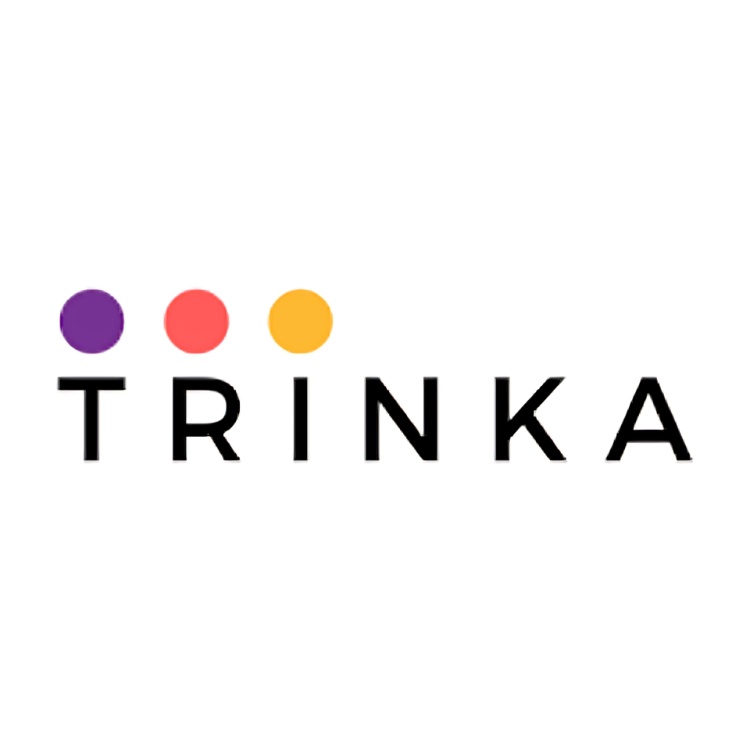
4. Writefull
Best for: Sentence-level feedback for academic authors
Key Features:
Uses a database of academic papers to suggest improvements
Offers automated revision tools
Works offline in Word and Overleaf
Pricing: Free version available; Premium ~€10/month

5. DeepL Write
Best for: Authors who write in languages other than English
Key Features:
Offers advanced writing suggestions
Polishes translated content to sound natural and fluent
Pricing: Free with optional Pro plan (~$9/month)

Best Practices for Using AI in Peer Review Response
While AI tools offer powerful assistance, it’s essential to use them ethically and wisely.
Do:
Use AI for language, tone, and structure, not scientific content
Review AI suggestions critically and revise as needed
Keep your own voice and academic reasoning clear
Ensure you’re responding to each reviewer point directly
Include detailed explanations for all changes made
Avoid:
Copying AI-generated text without understanding or revising it
Using AI to generate technical or scientific claims
Submitting AI-written replies without verifying their accuracy
Over-relying on AI for deeply critical feedback
Don’t Replace Human Experts with AI Tools

While AI tools can be very useful, it’s important to remember that they cannot replace the role of human professionals in responding to peer review comments. Here’s why:
What AI Tools Can Do
Help improve grammar and writing style
Organize your responses clearly
Suggest ways to phrase your answers more professionally
What AI Tools Can’t Do
Fully understand the complex scientific details of your research
Grasp the subtle concerns or nuances raised by reviewers
Provide personalized insight based on academic experience
Judge the accuracy and appropriateness of your scientific explanations
Why Human Expertise Is Essential
Human editors and mentors can interpret reviewers’ feedback more deeply
Experienced colleagues can help clarify misunderstandings and suggest stronger arguments
They ensure that your responses are honest, precise, and tailored to your research
Humans can catch issues that AI might miss or misinterpret
Risks of Relying Solely on AI
Missing key points in reviewer comments
Producing generic or unclear replies that don’t satisfy reviewers
Failing to address the scientific content accurately
Best Practice: Combine AI Tools with Human Support
Always review and refine responses with input from experts or mentors
Treat AI as a helpful assistant, not a replacement for professional judgment
Final Thoughts
AI tools are transforming how researchers interact with the academic publishing process—including peer review. While they can’t replace your expertise or your manuscript’s substance, they can significantly enhance how you communicate your revisions and address reviewer concerns.
From ChatGPT’s flexibility to Grammarly’s polish and Trinka’s discipline-specific guidance, these tools can save time, reduce anxiety, and improve the professionalism of your response letters.
Remember: AI is here to assist, not replace. Use it as a partner in your academic journey—especially in high-stakes moments like peer review. With the right combination of your research skills and AI-powered clarity, you'll be better equipped to navigate the path to publication.
Need Help Answering Reviewers’ Comments?
Responding effectively to reviewer comments is crucial for getting your paper accepted. At SITA Academy, we offer a range of services designed to help you address these comments professionally and thoroughly.
Reviewer Comment | Our Service | What We Provide |
Reviewer requests clearer language or grammar | Editing | Native English editing by professional editors, improving grammar, clarity, tone, and academic style |
Reviewer asks for formatting changes | Formatting | Professional formatting tailored to the journal’s guidelines, including sections, references, and figures |
Reviewer suggests adding a summary visual | Graphical Abstract | Designing a clear, attractive graphical abstract to visually summarize your research |
Reviewer wants a stronger cover letter | Cover Letter Writing | Crafting a compelling, concise cover letter that highlights your study’s importance and fits journal expectations |
Reviewer requests an extended summary | Extended Abstract Writing | Writing or refining an extended abstract suitable for conferences or special submissions |
Our editing service goes beyond simple proofreading by enhancing the overall flow and academic tone of your manuscript. Formatting ensures your paper complies fully with the journal’s strict requirements, reducing delays.
With our support, you can confidently respond to reviewers and strengthen your manuscript.
Verified Contact Channels
If you have any questions, inquiries, or would like to learn more about our services, please don't hesitate to reach out to us. Our dedicated team is ready to assist you.





